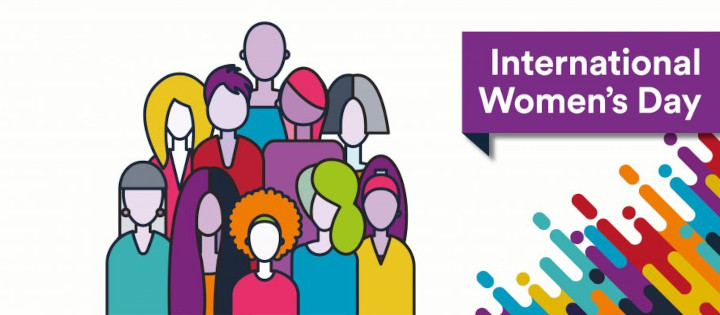 Following our successful events for LGBT+ History Month in February, March sees the celebration of International Women’s Day. At the University of Nottingham, we have so much to celebrate in this space that we have renamed March International Women’s Month!
Following our successful events for LGBT+ History Month in February, March sees the celebration of International Women’s Day. At the University of Nottingham, we have so much to celebrate in this space that we have renamed March International Women’s Month!
Later this year the University will be applying to renew its Athena Swan award. To prepare for the application and not to shift focus from any of our work for other protected characteristic groups, we have bought out staff, Tamsin Majerus, Jess Tyson and Katie Severn, to lead the institutional application and to ensure that we have continuity in delivering on our new action plan. I am pleased that the initial research on longitudinal data and beacon activities has reassured the Athena Swan Leads and the Athena Swan Institutional Self-Assessment Team that as an institution we should aim for a gold award. This would be a tremendous achievement for the University of Nottingham, and I would ask that all areas of the university support any requests for information, data, beacon activities or examples of lived experiences so that we can demonstrate the progress we have made in this space over the past five years.
Despite applying for a gold award, we are not complacent about the fact there is still much more to do to achieve gender equality. Significant work in this area is taking place across the whole of the university daily and so I will just try and highlight a few key initiatives here.
Initiated by staff and students in the Biodiversity Institute, working collectively with myself and a host of dedicated volunteers, Project Period has now distributed over 150,000 free sanitary products to our staff and students. Our new staff network, The Haven, will host its first event this month to support those in our community who have experienced infertility, miscarriage or child loss. To address the impact of both systemic inequalities and the legacy of the Covid pandemic, we are offering career development workshops to Professional Services staff with protected characteristics.
Our central event for International Women’s Month will build on the new approach we have adopted for our last two recognition months, Disability and LGBT+. As well as the celebration the achievements of individuals’ protected characteristics and awareness raising of lived experiences, we now ensure our central events have a core development and education opportunity and showcases support resources we already have at the university.
To create a sense of belonging for all our staff and students requires all of us to demonstrate cultural humility and be open and curious to learning about diversity and difference. Unity in Diversity is our new Moodle module, led by Nagamani Bora and created with support from Tara de Cozar in the Communications and Advocacy team, and it shows our students how to do just this. You don’t have to have the specific protected characteristic to attend a recognition month event and we offer a wide range of different sessions to encourage participation by all staff and students.
There’s also the opportunity to share your thoughts on the reproductive and gynecological health support available at the university. What works well, what could be better, and what’s missing from current support? Add your comments to the padlet.
Allyship and advocacy are what will really drive forward inclusion at pace and we welcome those who do and don’t identify as a woman at our International Women’s Month events. To encourage wider and meaningful engagement with the issues that impact on half of the workforce and to break down the stigma and taboo associated with menstruation and menopause, this year’s central event will be facilitated by both men and women and we encourage everyone to come along!
Professor Katherine Linehan
How to say my name
Pro-Vice-Chancellor for Equality, Diversity, Inclusion and People
6 March 2023